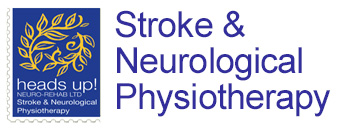Acquired Brain Injury
How an acquired brain injury (ABI) can affect your life
An acquired brain injury is a type of brain damage that occurs after birth, hence the term ‘acquired’. ABIs can result from external or internal factors that disrupt the brain’s normal functioning, such as restricting its normal flow of oxygen. These injuries can have a lasting impact on cognitive, physical, emotional, and behavioural abilities.
It is not a single condition, it includes various causes and symptoms, affecting each individual differently.
An ABI can significantly affect an individual’s ability to navigate daily life. These impacts vary widely based on the severity and location of the brain injury but often involve challenges in physical, cognitive, and emotional domains.
- Mobility Limitations: Weakness, coordination problems, or even paralysis in severe cases.
- Chronic Pain: Headaches or muscle pain due to injury or strain.
- Speech and Communication Issues: Difficulty articulating thoughts or understanding language.
- Memory Issues: Difficulty recalling recent events or retaining new information.
- Problem-solving difficulties: Challenges in decision-making, reasoning, or handling complex tasks.
- Attention Deficits: Trouble concentrating or multitasking.
- Mood Swings: Sudden and intense emotional shifts.
- Anxiety or Depression: Struggles with mental health due to life changes.
- Social Withdrawal: Feelings of isolation or discomfort in social settings.
Supporting your recovery after an acquired brain injury
Our team of physiotherapists are specialised and experienced in dealing with the impact following a traumatic brain injury.
We tailor the assessment and treatment to your abilities, and set targets together which are relevant to your life. We create specific home exercise programmes to allow you to build on the skills learnt in your physiotherapy sessions at home. We can also offer you community visits, which can assist you when returning to previous hobbies, and help you to regain as much independence as your injury can allow.
What to expect from heads up
First assessment
- We will take time to listen to how your ABI has impacted your life, what difficulties you are experiencing and discuss what is important to you to focus on.
- We will assess how your ABI has affected you physically, cognitively and emotionally and support you to formulate short- and long-term goals to work on.
- We will take time to explain what we are doing and to answer any questions you may have about your situation.
- We will provide some initial advice, treatment and guidance with exercises to carry out.
- We will discuss what your treatment plan may look like and offer treatment sessions that will suit your needs.
Treatment plan
Assessment is ongoing throughout the treatment process as your ability changes and progress is made.
Treatment may include stretches to tight muscle groups and the strengthening of weak muscle groups. To improve efficiency of movement and positions we will work on re-alignment of joints, balance and walking. We also look at sensory re-education for those with altered sensation to touch.
Your home exercise programme will be updated and reviewed regularly.
After discussion, we may liaise with your GP or consultant about your medication and medical management. We may signpost you to organisations that can support you and/or refer you to other health professionals.
There will be regular opportunity to discuss your progress and your changing needs.
